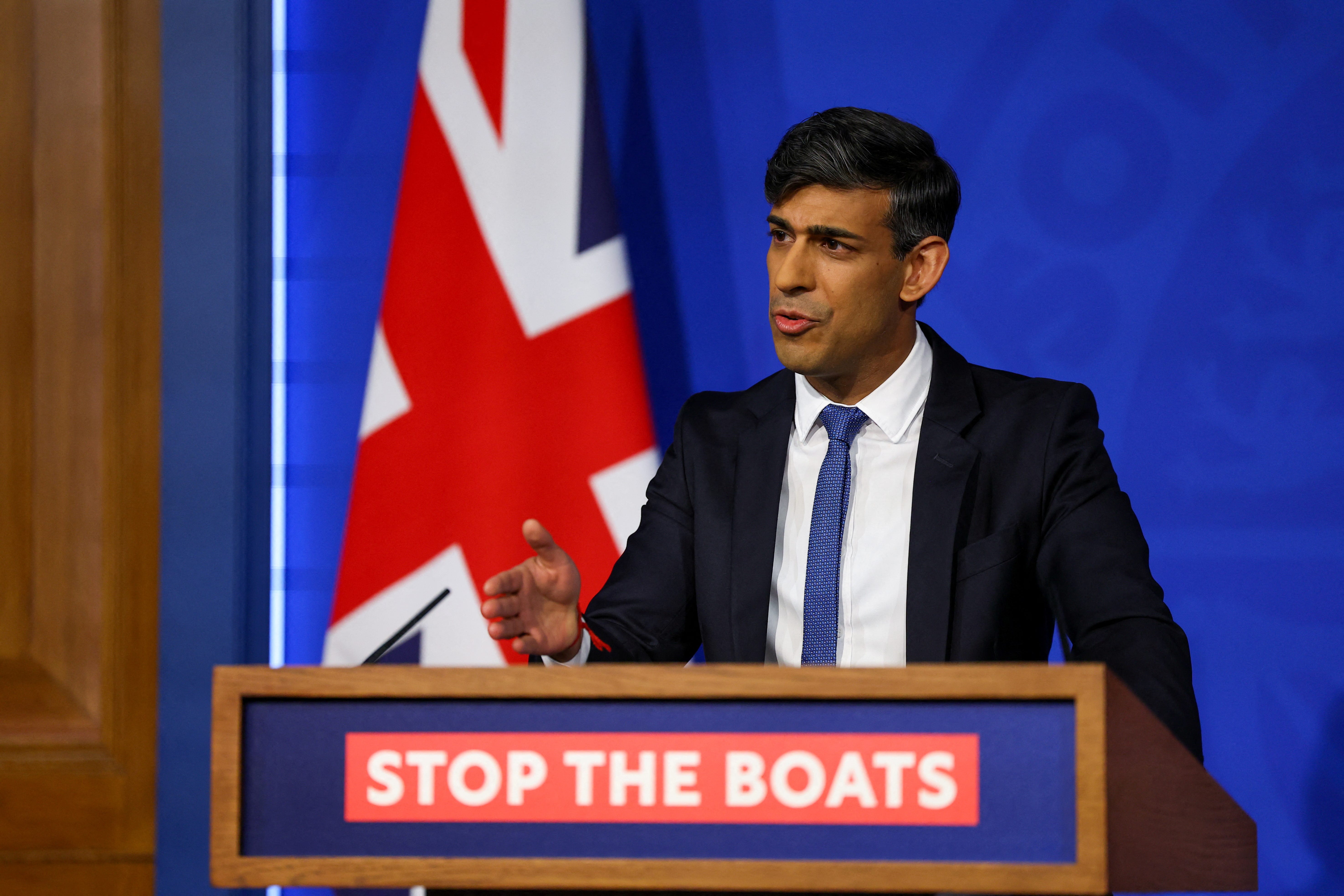Thousands of migrants eligible for Rwanda scheme not reporting to Home Office
Out of 5,700 people identified for removal, 2,145 can be located for detention, an impact assessment says.

Thousands of asylum seekers earmarked by the Home Office for deportation to Rwanda have lost contact with the department, a Government document suggests.
Out of 5,700 people identified for removal, 2,145 “continue to report to the Home Office and can be located for detention”, the impact assessment says.
The document, updated on the Home Office’s website on Monday, also acknowledges there could be further delays to deportations caused by MPs making last-minute representations to suspend removals.
There is a long-standing parliamentary convention whereby removals can be suspended until a case has been considered and a response issued to the MP.
The assessment says that given the “novel nature” of the scheme, “we may expect future (Migration and Economic Development Partnership) cases to attract significant attention from MPs, and responders may be overwhelmed by cases, causing a delay or removal to be cancelled pending a response.”
It appears to be the latest in a series of setbacks to the Government’s stalled scheme to deport some asylum seekers to Rwanda, which was announced two years ago but is yet to see a flight take off.
A Home Office spokesperson said: “As the Prime Minister has made clear, we will get flights off the ground to Rwanda in the next 10 to 12 weeks.
“In preparation for flights taking off, we have identified the initial cohort to be removed to Rwanda and have hundreds of dedicated caseworkers ready to process any appeals.”
Meanwhile, Rishi Sunak rejected the idea of accepting the return of asylum seekers from Ireland amid concerns the policy was driving migrants across the border into the republic.
The Prime Minister said he was “not interested” in a returns deal if the European Union did not allow the UK to send back asylum seekers who had crossed the English Channel from France.
The UK Government’s Rwanda legislation paves the way for asylum seekers to be sent on a one-way trip to the African nation, and ministers have hailed its deterrent effect as they try to stop small boat crossings from France.
The UK’s new deterrent is clearly working and having some impact already. An impact that will obviously increase as the first flights take off for Rwanda
But the Irish Government has claimed the number of asylum seekers crossing from Northern Ireland is now “higher than 80%” of Ireland’s overall total due to a shift in migration patterns in recent months.
The issue was discussed by the UK and Irish governments at high-level talks in London on Monday.
The Irish Government has proposed new legislation to make it easier to send migrants to the UK, effectively reversing an Irish High Court ruling that the UK is no longer a “safe third country” for returning asylum seekers because of the Rwanda plan.
At a joint press conference in Westminster, Northern Ireland Secretary Chris Heaton-Harris and Irish deputy premier Micheal Martin sought to play down any rift over the issue.
Mr Heaton-Harris said “The UK’s new deterrent is clearly working and having some impact already. An impact that will obviously increase as the first flights take off for Rwanda.
“We will obviously monitor all this very closely and continue to work with the Irish Government on these matters.”
Mr Heaton-Harris said there is “no way that we would want to upset our relationship with Ireland”.
There is a “joint commitment to protect the common travel area from abuse”, he added.
The Cabinet minister said that while the deterrent effect was anticipated, “we are slightly surprised that it manifested itself so quickly after the Act became law”.
He added that he was “comfortable” with the Irish Government’s proposed legislation, which he said was resetting the legal position after the Irish High Court ruled that the UK was no longer a safe country.
Mr Martin highlighted the need for international action to curb irregular migration.
He acknowledged that any agreements on returns would have to be “mutual” and “reciprocal”.
Elsewhere, a meeting between James Cleverly and Irish justice minister Helen McEntee was postponed.
The Home Secretary and Ms McEntee had been due to meet on Monday to discuss “strengthening” the Common Travel Area, but the meeting was shelved late on Sunday.
Speaking to reporters on Monday, Irish Media Minister Catherine Martin said the meeting was postponed due to “a genuine diary clash”.
Meanwhile, Channel crossings continued on Monday and Home Office figures showed more than 7,000 migrants have arrived in the UK so far this year after making the journey – a new record for the first four months of a calendar year.
About 500 crossed the Channel to the UK on Friday and Saturday alone, taking the provisional total for 2024 to date to 7,167.
This exceeds the previous record of 6,691 for January to April 2022 and has already surpassed 5,946 for the first four months of last year.
It means arrivals are 24% higher than this time last year and 7% higher than at this point in 2022.
No crossings were recorded on Sunday but groups of migrants were pictured being brought ashore in Dover, Kent, on Monday amid sunny, breezy and clear conditions at sea.
Bookmark popover
Removed from bookmarks